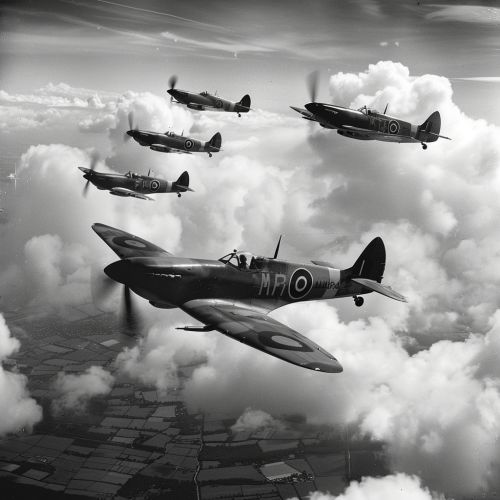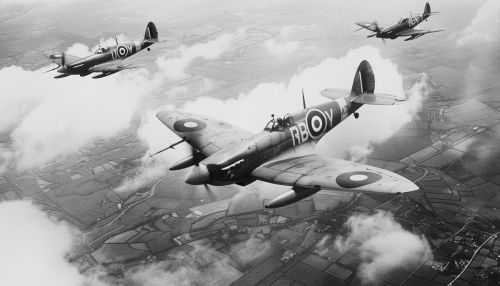Battle of Britain
Overview
The Battle of Britain was a significant conflict of World War II in which the United Kingdom's Royal Air Force (RAF) defended the British Isles against large-scale attacks by Nazi Germany's air force, the Luftwaffe. It has been described as the first major military campaign fought entirely by air forces.
Background
The Battle of Britain took place from 10 July to 31 October 1940, during the early stages of World War II. The battle was the first major campaign to be fought entirely by air forces, and was also the largest and most sustained aerial bombing campaign to that date.


Prelude to the Battle
The German objective was to gain air superiority over the RAF, especially Fighter Command. The name derives from a famous speech delivered by Prime Minister Winston Churchill in the House of Commons: "The Battle of France is over. I expect that the Battle of Britain is about to begin..."
The Battle
The battle consisted of two main phases. The first, from 10 July to 11 August, saw the Germans targeting convoys in the English Channel and the facilities that serviced them, as well as coastal airfields and defences. The second phase, from 12 August to 31 October, was a strategic bombing campaign against RAF airfields and later, urban areas.
Aftermath
The battle ended when Germany’s Luftwaffe failed to gain air superiority over the RAF despite a sustained campaign of bombing key British cities. Britain’s victory saved the country from a ground invasion and possible occupation by German forces while proving that air power alone could be used to win a major battle.
Significance
The Battle of Britain has a unique place in history. It marked a turning point in the fortunes of World War II, and the destiny of the United Kingdom and the free world. The battle also had a significant effect on the morale of the British public.
